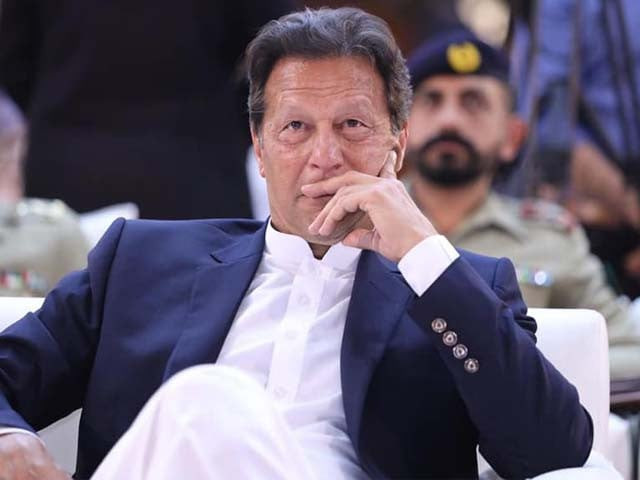The events which have transpired over the past fortnight in Pakistan are of such magnitude that Pakistan Tehreek-e-Insaf (PTI) might find it difficult to govern the country even if it survives the no-confidence vote. The so-called ‘PTI rebels’ will either resign or be booted out of parliament and the party after voting in favour of the motion. In any case, this will lead to a re-shuffling of the pack (except for the reserved seats) and the numerical strength of PTI in parliament will be contingent on this result. Given the time this process might take, PTI may not have the required numbers to pass the Finance Bill for the upcoming fiscal year.
Looking at the course of events in hindsight, PTI’s ‘Naya Pakistan’ took off with a series of compromises, as demonstrated by the appointment of Usman Buzdar. On the economic front, a lack of continuity has remained a prevalent theme. Imran Khan used to brag about the competence of his team well before making his way to the premiership. Asad Umar was presented as the poster boy of PTI who would steer the country out of its economic woes. The aptness of marketing was such that despite Umar’s frequent warnings of the deteriorating economic indicators, PTI could not handle the mounting public pressure resulting from his contractionary policies. This made Umar's subsequent sacking from the Finance Ministry in less than a year almost inevitable. Interestingly, it wasn’t a one-off event. What happened with Hafeez Shaikh was even worse as he was unceremoniously removed only a few days after he lost the Senate elections.
However, by choice or by compulsion, PTI has effectuated some imperative economic policies. The foremost reform has been changing to an exchange rate which is determined by market forces and may see the central bank’s interference if required. The move away from the parochial concept of a ‘strong rupee’ was critical since an over-valued rupee limited the competitiveness of our exports and triggered an external account crisis heavier than what could be financed through the foreign exchange reserves at the government’s disposal. This is why such a policy is often referred to as having an ‘anti-export bias’.
As a result of the change, PTI has been able to resurrect the export industry. Exports have started to surge after a lag, and the total exports in the ongoing fiscal year (FY) have surmounted to $25.1 billion in the first eight months which roughly translates into 26% year-on-year (YoY) growth. PTI can also be credited with pulling off growth in excess of 5% without enkindling a bloated current account deficit (CAD). However, the man who helped attain this was replaced by Shaukat Tarin, who has turned the efforts of his predecessor upside down. The trade deficit began to widen as soon as the initial results poured in for the fiscal year. The continuation in remittance growth assisted the government somewhat but the CAD has still ballooned to a tad over $12 billion in the eight months of FY22.
As far as foreign policy is concerned, Khan never backtracked on how he wanted to position Pakistan on the world stage. He has been aided well by his subordinates, and Foreign Minister Shah Mahmood Qureshi in trying to uplift Pakistan’s global image. The appointment of a skilful National Security Advisor (NSA), the refusal to give airbases to the United States in Pakistan, Khan’s historic address at the United Nations (UN) against Indian atrocities in occupied Kashmir, and the success of globalising efforts to counter Islamophobia are a few key highlights of propitious diplomacy. All this is imperative if Pakistan wishes to attract investors and present the country as a stable economy for investment.
The no-confidence motion comes at a time when the government is likely to take unpopular economic decisions in the coming months. The PTI’s Achilles’ heel has been its inability to taper inflation. This problem will not fade away any time soon with a war happening in Europe and, consequently, unprecedented volatility (mostly upside) in crude oil prices. If the opposition succeeds, it will have to face the public with the same humiliation of rising prices. Only time will tell what the true economic fallout of this latest political saga will be.



COMMENTS
Comments are moderated and generally will be posted if they are on-topic and not abusive.
For more information, please see our Comments FAQ